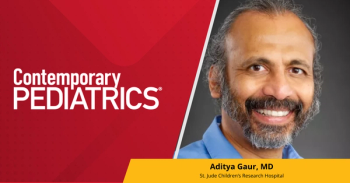
AAP letter urges the start of COVID-19 vaccine trials in young children
A safe coronavirus 2019 disease (COVID-19) vaccine that can be administered to most of the pediatric population is a necessity for ending the pandemic, but trials for younger children have not occurred. The president of the American Academy of Pediatrics (AAP) wrote to key COVID-19 officials about the need to change this.
The emergency use authorization of the Pfizer/BioNTech and Moderna vaccines for coronavirus 2019 disease (COVID-19) were met with celebration in December 2020 and the expected authorization of the Janssen/Johnson & Johnson single dose vaccine will add additional help in ending the COVID-19 pandemic. However, one key population is still mostly vulnerable: the pediatric population. Only the Pfizer/BioNTech vaccine can be administered to patients aged younger than 18 years and then only in patients aged 16 to 17 years. Both vaccines are currently running trials for children aged 12 and older.
Yesterday, the president of the American Academy of Pediatrics, Lee Savio Beers, MD, FAAP, wrote a
Beers noted that current predictions indicate that a COVID-19 vaccine may not be ready to administer to children aged younger than 12 years until early 2022. Although studies have shown that children aged younger than 10 years are less likely to become infected with the disease and spread the disease, data show that children aged 10 to 12 years may spread COVID-19 as efficiently as adults.
The letter closes with an important reminder that the drive to vaccinate all Americans is an important component of developing herd immunity against COVID-19 in the United States. Although the percentage necessary to achieve this status is not currently known, current estimates range from 70% of the US population to 90% of the US population. As children aged 18 years and younger make up 22% of the population and some adults will not be vaccinated either because of medical concerns or vaccine refusal, having a vaccine that can be administered to children aged younger than 18 years will be a necessary part of achieving the goal of herd immunity.
Reference
1. Beers LS. Letter to Jeffrey Zients; David Kessler, MD, FAAP; Anthony Fauci, MD; Janet Woodcock, MD. Published February 25, 2021. Accessed February 26, 2021.
Newsletter
Access practical, evidence-based guidance to support better care for our youngest patients. Join our email list for the latest clinical updates.






